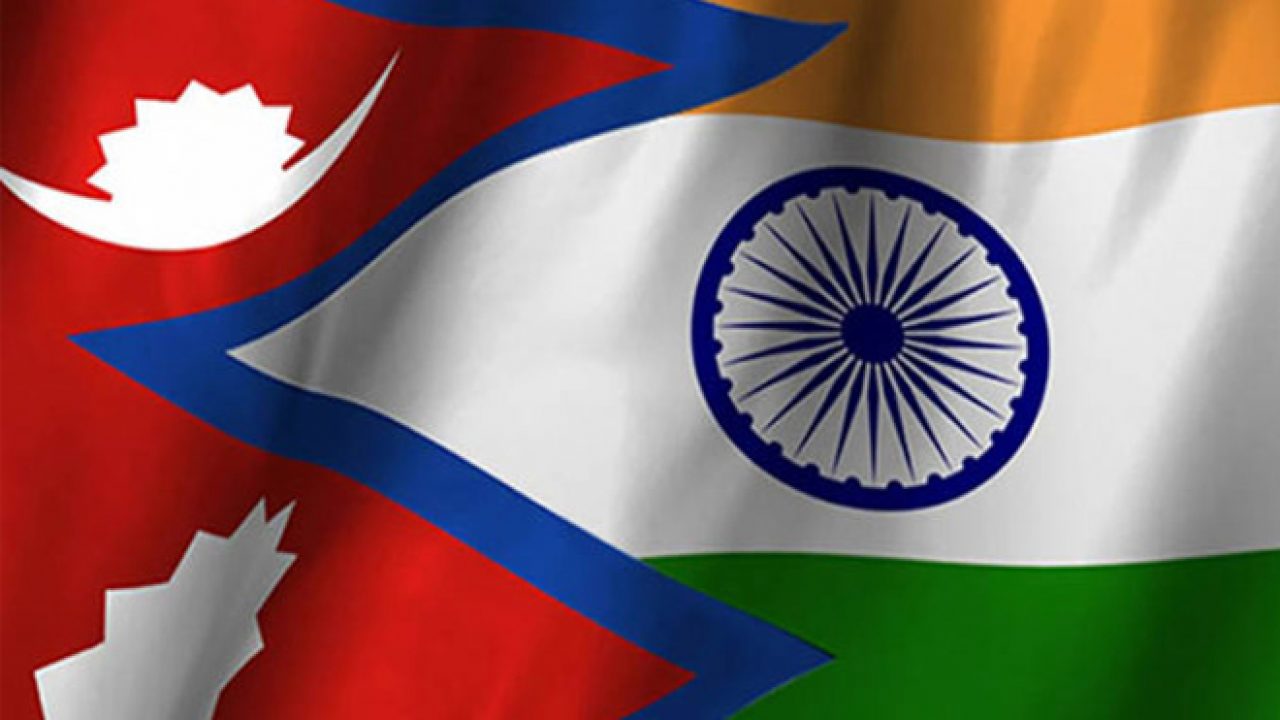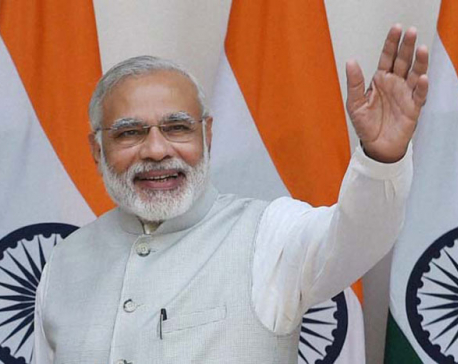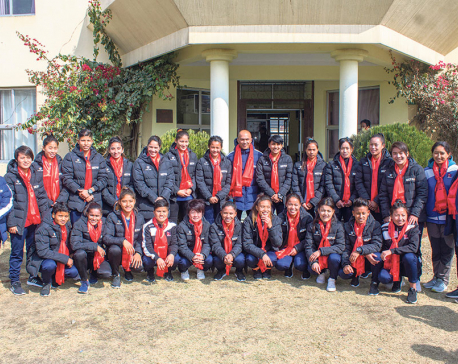
OR
Opinion
Why Nepalis Hate India and How That Can Change
Published On: June 4, 2022 06:30 AM NPT By: Nabraj Lama


Nabraj Lama
The author is a research scholar with a primary focus on Himalayan Studies, international relations, political economy, and Indigenism. He is affiliated with the Himalayan Strategic Institute.news@myrepublica.com
More from Author
- Strengthening Indigenous Rights: Key to Peace and Prosperity in Nepal's Federal Era
- Unavoidable Realism of Nepal’s Geopolitical Strategy
- Nepal's 1923 Treaty with British India: A Centennial Reflection on Diplomatic Resilience and Sovereignty
- India's Role in South Asia: Pathways to Regional Prosperity and Peace
- The Unequal Balance of Power: Kathmandu's Dual Standard on Rule Enforcement
Politicians, especially those from the communist parties of Nepal, have always fed the general public with anti-Indian sentiments. From the first communist Prime Minister Manmohan Adhikari to the Maoist Supremo Puspa Kamal Dahal 'Prachanda', and KP Sharma Oli, all have raised and fueled anti-Indian sentiments to get to power and popularity.
India has always been a notable actor in the major political changes in Nepal — abolition of the Rana regime, restoration of multiparty democracy, and the Peace Agreement with the Maoists. As much as 60% of economic activities in Nepal are directly connected with India with 80% of imports entering the country through India. India has been assisting Nepal to meet its development goals by providing grants to the country in diverse sectors. But, despite all these efforts, a large section of Nepalis, within and outside Nepal, does not like India.
Among the majority of the Nepalis who hate India, I also was one. I do not know why, and since when, but I had been hating India and Indians since I can remember. Surprisingly, the hatred was not only for Indians but also for people who looked like Indians too. During my travels to the USA and Canada, I saw several Nepali people working in Indian restaurants or other businesses owned by Indians. While the Nepalis shared that it was easier to work with Indians due to similar culture, food, language, and thinking styles; they asserted that they still disliked them. I, myself, had not used a good word like ‘brother’ while referring to people wearing a Dhoti. I, rather, called them using phrase“Oei Dhoti”. When I recall it today, I realize that they were bigger than me by age but they used to quietly listen to me and run away.
I did not question myself for hating India and Indians. I did not even know what the Bollywood actor Hrithik Roshan had said about Nepal, but I was there in the streets to protest, not particularly against him, but against India on December 25, 2000. During my travel through the east-west highway in 2009, I saw flags of India and Nepal with words that said “Nepal and Indian friendship”. I laughed at the scene. Looking at the words “Nepal-India friendship”, I thought that the two countries could not ever become friends. When I was in Dharchula (Indian town) for my research on the Pancheshwar Project, I was hosted by the Indian people with more respect than I would have received in the other half of the town that was in Nepal. But my pre-occupied mindset made me skeptical of their intentions. My thoughts during those days were profoundly anti-Indian — no matter what was said and how it was said, if India or the Indians had said it, then that was enough for me to be against it.
India was the first as well as the most generous country to help Nepal when the country went through the devastating earthquake of 2015. But like the majority of others, I participated in the #backoffIndia initiatives because of the remarks of a few Indian journalists. Such had been the general pattern of my understanding and perception from an early age.
It was during my professional endeavors in the field of global power dynamics and geo-politics that I realized that India is an emerging regional power in Asia and the power hub in South Asia. The most important thing is that Nepal lies under its sphere of influence. Thus, it is natural for India to both support and control Nepal as per the power dynamics in Asia and South Asia. I believe no matter how fast China grows, China will not directly intervene in Nepal without the consent of India. A reason for this is the 2 plus 1 concept that the two countries have agreed on for dealing with Nepal. It is also because high-level Chinese delegates visit Nepal only after visiting Delhi.
After such understanding, I now feel that my previous thoughts about India and Indians were due to two reasons: a lack of understanding of the global and regional power dynamics, and the heavy influence of the communist populist agenda and the slogan “The imperialist USA and expansionist India”. I have found that politicians, especially from the communist parties of Nepal, have always fed the general public with anti-Indian sentiments. Communist parties often demand a review to the Peace and Friendship Treaty of 1950 and similarly, they have been speaking against the Mahakali Treaty of 1996 among others when they are not in power. But when they have been in power, they have never raised such issues as vigorously as they expressed them while on the streets. Baburam Bhattarai presented the 40 points demand to the then Prime Minister of Nepal, Sher Bahadur Deuba. But when Bhattarai, himself, became the Prime Minister of Nepal, he did nothing to address the 40 points demand that he had presented a few years before. From the first communist Prime Minister Manmohan Adhikari, to the Maoist Supremo Puspa Kamal Dahal 'Prachanda', and KP Sharma Oli, all have raised and fueled anti-Indian sentiments to get to power and popularity.
When I contemplate all this today, I feel that my mind was captivated by the false political agenda of the communist parties of Nepal. I had thought that I had made the decisions myself for the sake of becoming a nationalist, but my decisions were not mine. It was the result of the powerful anti-Indian communist slogan that I had been subjected to since an early age. While saying all this, I don't mean that we do not have any reservation with India on our national issues. Many issues between Nepal and India need serious discussions and mitigation for a win-win situation, but the blind negative connotation to the neighboring country would never be beneficial to Nepal. Also, having some disagreement does not mean that we should perceive every move of India negatively.
Let us not forget that India and China are our neighbors, and the USA is the global superpower. The most important thing we should realize is that Nepal is till now a low developed, politically unstable, and economically dependent country. We should also realize that we cannot change our neighbors, and both of our neighbors — China and India — are much ahead of us in every sphere of development and are also influential in regional and international power politics. Thus, at such a stage, it is more of a compulsion for the Nepali people to strategically and diligently deal with the neighbors. As a well said saying goes: when sleeping between an elephant and a tiger, we should be extra careful. No matter if they change their position or fall or fight with each other, it is us that will suffer more harm. Similarly, now that the literacy and higher education attainment rate in Nepal is above 65%, every citizen should understand the double standard of our leaders.
The communist parties of Nepal have fueled anti-Indian sentiments for two reasons: to raise their bargaining capacity with the Indian establishment and to create a barrier for the marginalized communities and constituencies to connect to the regional power, i.e. India. Communist leaders are the ones who groom anti-Indian sentiments in Nepal and they are the ones who deal with India from a personal to a professional range. If we see this issue from a power politics lens, we would realize that it is not a new phenomenon. People try to make their position strong, but here the Indian establishment has failed to educate the general mass of Nepal. Basically, India is not understanding the sentiments of the Nepali people and the tools that the communist parties have been using to raise the Nepali people against them. The Indian establishment is underestimating the leftover constituency - the indigenous people and the marginalized communities in the hills while dealing with Nepal. They are engaged only with the face, but missing the real ground of Nepal. Thus, for a peaceful and prosperous Nepal, and also for the regional balance, India should deal with the leftover constituency of Nepal.
You May Like This

Nepal good friend of India: Deuba, India ready to support Nepal's development: Modi
NEW DELHI, Aug 24: Prime Minister Sher Bahadur Deuba, who is currently on a five-day state visit of India, said... Read More...

Nepal to play against Iran today
KATHMANDU, Feb13: Nepal is playing against Iran in its last league match of the Hero Gold Cup at Bhuveneshwor, India today. Read More...

President Bhandari, VP Pun and PM Oli congratulate Indian counterparts
KATHMANDU, Jan 26: President Bidya Devi Bhandari has congratulated the President of India Ram Nath Kovind on the occasion of the... Read More...










Just In
- NRB introduces cautiously flexible measures to address ongoing slowdown in various economic sectors
- Forced Covid-19 cremations: is it too late for redemption?
- NRB to provide collateral-free loans to foreign employment seekers
- NEB to publish Grade 12 results next week
- Body handover begins; Relatives remain dissatisfied with insurance, compensation amount
- NC defers its plan to join Koshi govt
- NRB to review microfinance loan interest rate
- 134 dead in floods and landslides since onset of monsoon this year








Leave A Comment